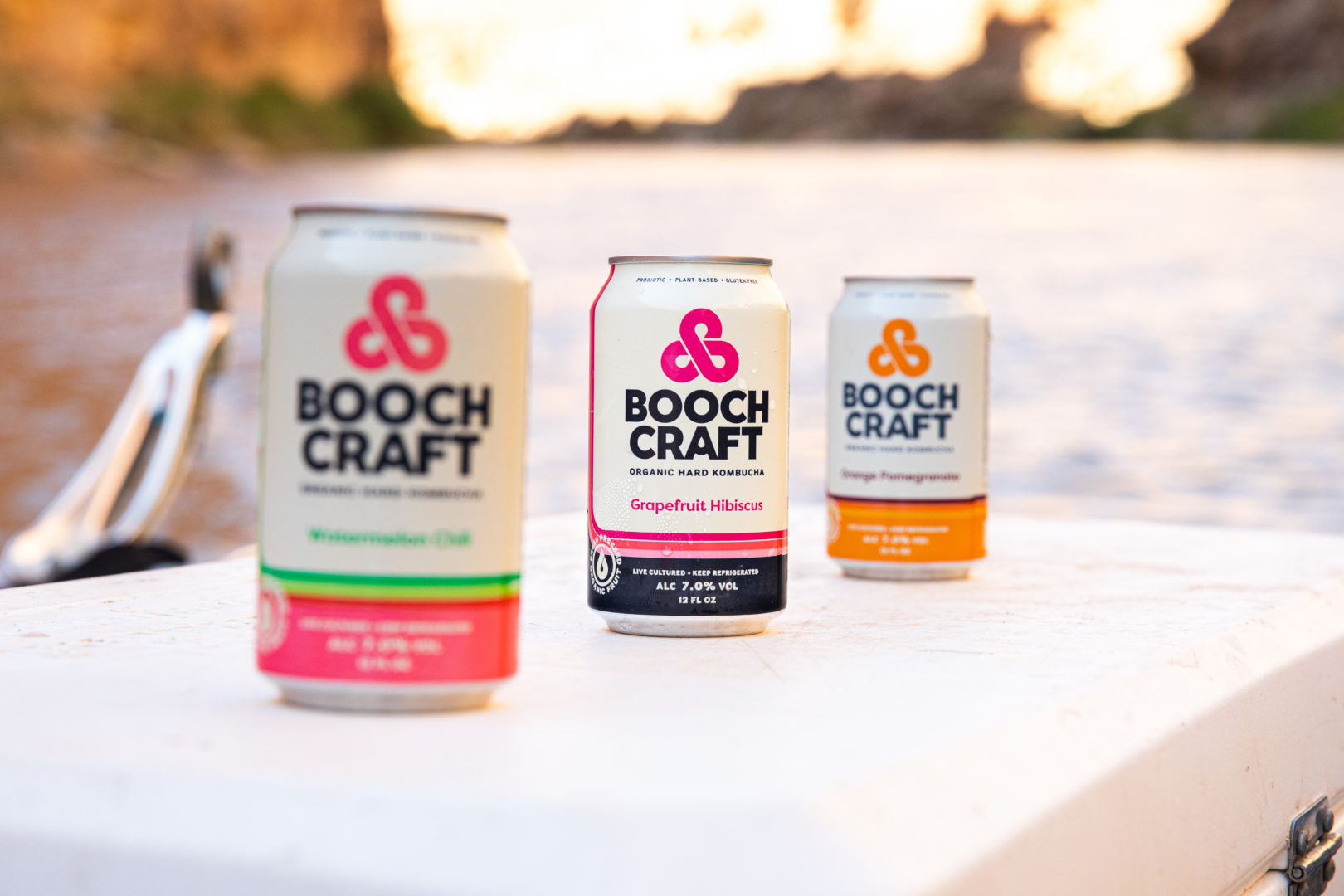

Making the Transition from Bottles to Cans
To Can or Not to Can?
That is the question. Taking a stroll through the grocery store, you’ll likely find kombucha packaged in various ways. Bottles, cans, plastic...you name it. Traditionally, kombucha is poured into glass bottles after fermentation, so what led to us transitioning from glass bottles to cans? Well, there’s quite a few reasons.
Why Canned Kombucha is a Better Option
For the Planet
As a certified B-Corporation, Boochcraft is always on a mission to “Do Better” for both people and the planet. Aluminum is one of the most commonly recycled materials, even more so than glass, with over 35 million cans being recycled each week. They are also incredibly easy to make (with cans often made of almost 70% recycled material already). Aluminum can be recycled indefinitely, using 90% less energy than recycling a glass bottle. With such a quick turnaround time, your discarded Boochcraft can can be back on the shelves in just a few months, without ever hitting a landfill. Aluminum cans also weigh much less than glass bottles and require less packaging. This reduces our environmental impact by using less material to keep bottles from breaking and less energy to transport Boochcraft from one place to another. You won’t find any plastic rings here; we neatly package our Booch in recyclable paper boxes.For Your Convenience
Glass bottles, however pretty, are not always as functional. We like to bring our Booch with us, and for safety reasons, glass bottles often aren’t allowed. On top of that, they’re heavy, clunky and delicate...nobody wants a broken bottle to ruin their day (and waste that precious Booch). References: https://www.euronews.com/green/2019/07/17/glass-bottles-vs-aluminium-cans-which-are-better-for-the-environment

